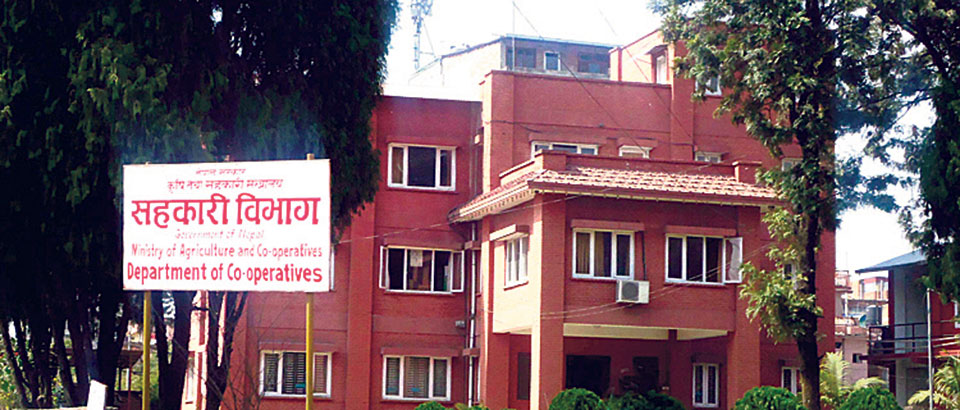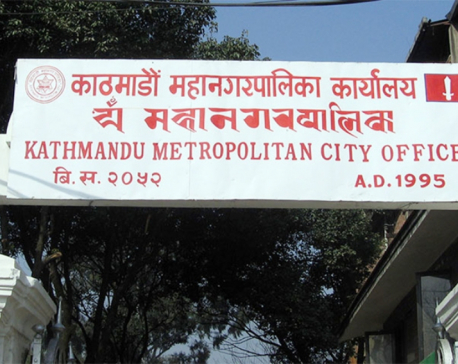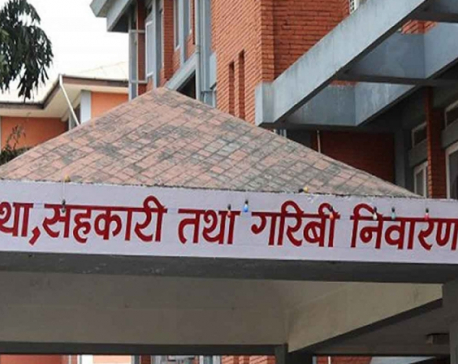
OR
Billions of rupees of depositors in cooperatives at risk due to lack of effective regulation
Published On: December 14, 2021 06:30 AM NPT By: RAJESH KHANAL

KATHMANDU, Dec 13: Cooperatives, member-based local organizations that are supposed to work in the interest of the general public, have instead been found cheating the small savers time and again, thanks to poor monitoring by the regulator.
In a recent case, the general public has fallen victim to Civil Savings and Credit Cooperative Society Limited, which has been blamed for embezzling Rs 5.67 billion of its depositors. Based on complaints lodged by as many as 1,502 depositors, the government authorities have forwarded the case against Ichchha Raj Tamang, founder of the cooperative, on the charge of embezzling the above-mentioned amount.
This is not the first time that the cooperatives, savings and credit cooperatives in particular, have put people’s hard-earned money in peril. The duped depositors of the failed Oriental Cooperative, perhaps the largest scam of the sector inside the country, are yet to get back their money which amounts to more than Rs 16 billion, from the cooperative.
Oriental Cooperative went bankrupt in 2013 after it disbursed loans haphazardly and allowing its key promoter Sudhir Basnet to illegally invest the depositors’ funds in the real estate market which later crashed. The government formed a high-level probe committee which had validated the claims of 7,545 applicants including depositors and banks that had issued loans to Oriental. But it has been almost a decade since the victims of Oriental have been waiting to get their money back.
The case with Civil Cooperative is no different from that of the Oriental Cooperatives. Apart from Civil Cooperatives and Oriental Cooperatives, the government has declared more than a dozen other cooperatives as ‘problematic,’ which are unable to pay back billions of rupees to their depositors.
The cooperatives termed as 'problematic' include Standard Savings and Credit Cooperative, Prabhu Savings and Credit Cooperative, Consumer Savings and Credit Cooperative, Kuber Savings and Credit Cooperative, Chartered Savings and Credit Cooperative, Vegas Savings and Credit Cooperative, Pacific Savings and Investment Cooperative, Kohinoor Hill Savings and Credit Cooperative, Standard Multipurpose Cooperative, Societal Savings and Credit Cooperative and Lunibha Multipurpose Cooperative.
Most recently, Anandanagar Savings and Credit Cooperative, Osmosis Savings and Credit Cooperative Limited, Goodwill Cooperative and Triple M Manapathi Multipurpose Cooperative Ltd, among others, have also landed into serious financial crises.
What ails the cooperatives?
Lack of good governance practices due to an unnecessarily high influence of the executives and lack of business diversification along with an over exposure in the real estate business have been found as the main misconducts in this sector, risking the money of the depositors.
According to Sudarshan Dhakal, former registrar of the Department of Cooperatives, incidents of fraud in cooperative societies were first reported in 2002. “After 2002, the number of cooperatives has increased significantly and the depositors’ complaints have also increased heavily, mainly due to the lack of law and poor monitoring by the regulator,” Dhakal said.
Before the country went into federalism, there were 42 offices of the Department of Cooperatives, the main regulator, spread across the country that monitored the cooperatives. But after federalism, the role has been given to the local and provincial bodies. Currently, the Department of Cooperatives under the federal government only monitors around 125 cooperatives while the rest are monitored by provincial and local governments.
As provisioned in the new federal Constitution, more than 80 percent of the primary cooperatives are under the purview of the local governments. The United Nations Development Programme (UNDP) in its report has stated that the cooperatives, if properly mobilized, could harness the productivity of local people effectively. “However, the local governments that are delegated authority to regulate the cooperatives do not have specific institutional memory, regulatory system, and standard experiences regarding how the cooperatives are regulated,” reads the report.
You May Like This

KMC registered over 1,000 complaints against 27 cooperatives last FY
KATHMANDU, September 15: The Kathmandu Metropolitan City (KMC) registered complaints against 27 cooperatives accused of embezzling their members’ deposits worth around... Read More...

Govt working at snail’s pace to address the issue of problematic cooperatives
KATHMANDU, Dec 28: The government has asked the problematic cooperatives to submit their work plan to return the money of... Read More...

Depositors lose billions of rupees due to lack of effective regulation of cooperatives
KATHMANDU, June 29: Depositors have lost billions of rupees due to the lack of effective regulation of cooperative institutions by... Read More...






Just In
- Challenges Confronting the New Coalition
- NRB introduces cautiously flexible measures to address ongoing slowdown in various economic sectors
- Forced Covid-19 cremations: is it too late for redemption?
- NRB to provide collateral-free loans to foreign employment seekers
- NEB to publish Grade 12 results next week
- Body handover begins; Relatives remain dissatisfied with insurance, compensation amount
- NC defers its plan to join Koshi govt
- NRB to review microfinance loan interest rate











Leave A Comment